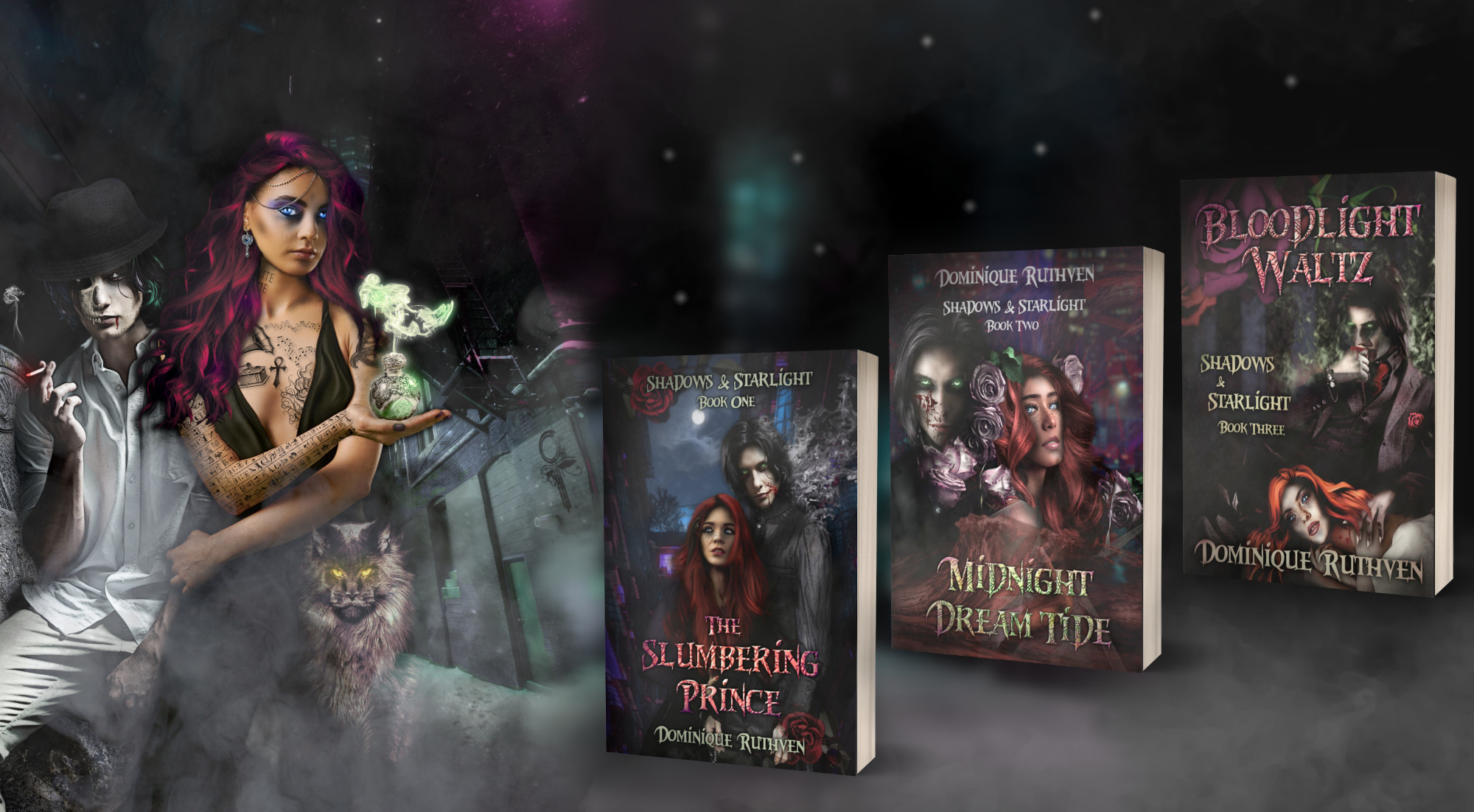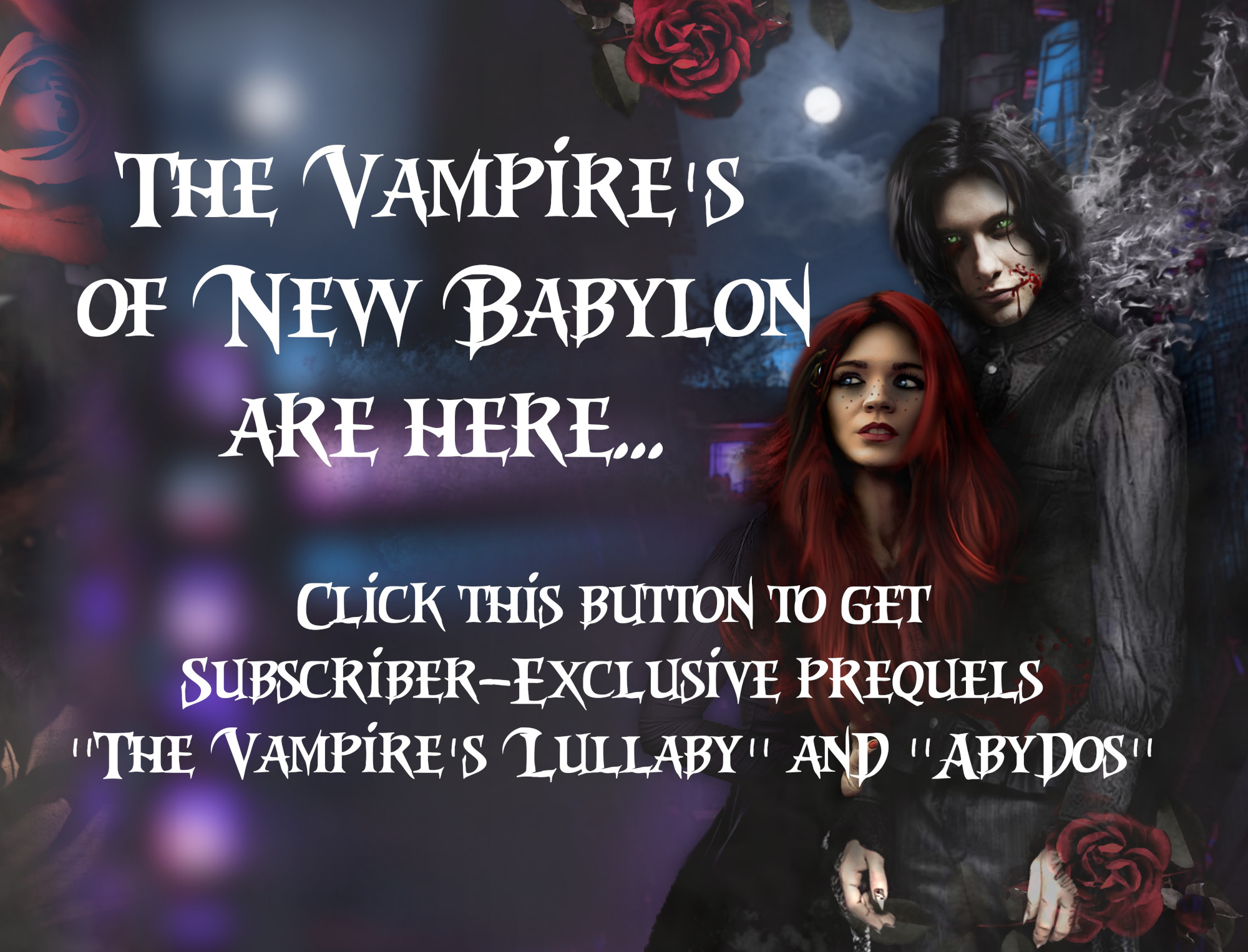Aren’t all souls in New Awlins a little lost?
(What the hell colour is Chartreuse anyway?)
Dracula paged to the next paper on the presentation flipchart easel. “So in summation,” he said.
“Don’t say it,” Seth muttered under his breath.
“Without a doubt, I am in this one,” Dracula finished.
“Of course, he is.” Seth dropped his head into his hands.
“What? Like last time?” Trenchant said, toying with the black lace of her fingerless gloves. “The one where Harker blew up in a car? Is it because there are actual cars in this one?”
“No,” Seth groaned out. “It’s just part of his elaborate superiority complex, what with him considered to be the first vampire in fiction.”
“Carmilla,” Trenchant interjected.
“Varney,” Dracula said.
“The first literary vampire people think of when discussing vampire books, and-” Seth flicked his gaze to Dracula. “Varney?”
“Yes, he was dreadful. I approve.”
“Not helping your case, old boy,” Fenrir said, stirring from his beard plaiting. “And besides, he has a point.”
“You’re not seriously going with this, megalomania?” Seth said.
Anatole slammed her palms on the table. “You just sat through a one hour and twenty-minute presentation as to why Lost Souls is a retelling of Dracula, and you’re arguing with him? What if he starts from the beginning, hmm? What if he thinks that doing it all again will make you understand better? Think, Nine-pence! No, you only think of yourself!”
“Well, if you think it will help,” Dracula said, starting to page back to the beginning of his presentation.
“No!” Both Seth and Anatole called out simultaneously.
“No,” Seth said, a little softer. “We believe you.”
“We believe you if you promise never to do that again,” Anatole added. “I swear, if I didn’t have eternity, I’d be seriously pissed about this time I’m never getting back.”
“Are we just going to breeze over the illustrations?” Seth said.
“Yes,” Trenchant and Fenrir said at the same time.
“The biiirths,” Trenchant whispered with a shudder. “Not that I care.”
Fenrir puffed a breath out between his lips. “So if we are to agree that he is in this one, let’s get at why. Which character-?”
“Zilla,” Trenchant and Anatole said together.
“Pretty much the only candidate,” Seth said.
“So once the story gets there, it’s entirely about humans going on a long journey across dangerous territory to save a female-”
“Who obviously didn’t want to be saved,” Anatole said.
“True, in both instances,” Fenrir said. He cleared his throat to forestall any further interruption. “To save a female who was seduced and stolen away by the mysterious and deadly monster.”
“The Dracula,” Dracula said.
“Do I detect a little misplaced pride?” Trenchant said. “The Dracula not only refers to himself in the third person now but with a definite article as his identifier, hm?”
“The archetype,” Fenrir said, nodding. “It’s only fair that the mysterious and deadly monster archetype be called The Dracula.”
“Since it was based on me,” Dracula interjected. “I’m Dracula.”
This information was duly digested.
“In this one, does The Dracula also get ignominiously killed in the end as well?” Trenchant said from under her heavily mascara’d eyelashes.
“You know what really pisses me off? Apart from the presentation?”
The others knew better than to interrupt Anatole’s tirade this early.
“The women. Both of them.”
She took angry breaths, in and out, but did not elaborate.
“No chance for a Bechdel test in this one,” Fenrir said. “The only women mentioned by name lived and died fifteen years apart.”
“The biiiiirths!” Trenchant said again, staring into the middle distance, but then settled back with another shudder, and said: “Not that I’m fazed, man. Everybody dies.”
There was an uncomfortable moment, where the brood of vampires readjusted their still bodies in their seats, as if testing whether they were still, in fact, alive, in unison.
“Yeah, and both died in childbirth,” Anatole said. “What’s this, the 1800’s?”
“Weren’t you a midwife in the 1800s?” Trenchant asked, then straightened out her black lace dress. “Not that I care.”
She beckoned the proprietor over. “Mr Cavendish, dear, you wouldn’t happen to have some Chartreuse on hand?”
Virgil Cavendish’s brows furrowed. “To do what with?”
“Nevermind,” Trenchant said, pulling a half jack of violently virile yellowish-green liquor from an inside pocket of her tiny leather half-jacket. “I brought my own.”
“What colour even is that?” Anatole asked.
“Chartreuse,” Trenchant said. “Like Monsieur D’Asur’s eyes.”
“That’s Praetor,” Seth said on reflex, then added: “And I am told my eyes are moss green.”
“Chartreuse,” Trenchant purred.
“Can’t see anything special about it,” Fenrir said. “Looks the same as any other booze.”
“It’s certainly virulent,” Anatole said. “I wonder what it tastes like?”
“Wouldn’t recommend it,” Fenrir said.
“Please, Lords and Ladies,” Virgil said, “I’ve just had the floors waxed.”
“How can you say it looks the same,” Anatole said. “What colour do you think it is?”
“That? Hmm,” Fenrir said, adjusting his glasses on his battle-scarred nose. “Grey?”
“How do you get grey from that? It’s obviously yellow!” Anatole said.
“Greeeen,” Trenchant purred. “Like cats’ eyes.”
“Cats have grey eyes,” Fenrir said.
“Fenrir, darling, are you colour blind?”
“Am not?” Fenrir muttered. “You’re just making up colours to mess with me.”
“What colour am I wearing,” Trenchant drawled out.
“Black,” Fenrir said. “And stop segueing; it’s unworthy.”
Trenchant sat up straighter, inspected her black lace dress, her black fingerless gloves, and her little black leather jacket. “Fair cop,” she muttered. “But what about Monsieur D’Asur?” He was attired in a black suit with a white dress shirt. “Madame Anatole.” A black cocktail dress. “Drac-” Black formal attire. “Fenrir, what colours are you wearing?”
He looked down at his bare chest, his black leather trousers, and then turned around to look at the grey and black wolf pelt greatcoat draped over the back of his chair.
“Hopeless,” Trenchant said. “Not that I care.”
“And stop that,” Fenrir barked. “All of you. This book is dangerous. Look at what it’s done to all of you! Can you imagine what would happen if younger vampires acted like the fools in this book?”
“Wild and free,” Trenchant drawled.
Fenrir gave her a stern look.
“Sorry,” she said in a small, albeit more normal voice.
“I spent most of the 19th century hunting abominations through the streets of this city, for the good of our kind,” Fenrir said.
“Fun times,” Anatole said.
“Bad times. Apocalyptic times. The closest we have ever come to irrevocably destroying the delicate balance between vampire and human. We had witch hunters roaming the streets, looking for the undead. They got damned good at killing revenants, the afflicted, as they called them. How many of our own did we lose? Wrong place at the wrong time?”
“Too many,” Seth said.
Fenrir glared at Seth. “Damn right, too many. Even though your bloodline was the cause, you did right by us that night.”
The mood dampened quite a bit.
Fenrir continued, his voice low and intense. “Acting like damned fools. Driving under the influence, leaving kills for humans to find. Back then we were lucky. The people were superstitious, easily cowed. Now they have science, and law, and electric lights. A will to find the truth that will lead them to us irrevocably, and soon. There is a reason we have our rules, to reveal yourself to the uninitiated means death. We cannot risk it. As powerful as we are, men with guns can bear us down. There is a reason why we school our children for fifty years before presenting them to society.”
Fenrir retreated into his greatcoat, and his memories. Not happy ones.
A few uncomfortable looks passed among the other participants.
The beaded curtains flew open, and a startlingly pale, white-haired woman, looking like she’d just stepped out of a rave, stormed in. She spied the book club, and stalked over, her platform boots stomping on the freshly waxed wooden floors, leaving shimmering puffs of glitter behind. She slapped a mismatched set of keys onto the table.
“Eighty years!” She hissed.
“Oh, hi Lucienne,” Anatole said brightly, happy for anything to snap away the mood.
“Evening, Queen Anatole. I trust you are well?” Lucienne acknowledged her out of reflexive respect garnered from years spent with monsters who could tear one in half for any perceived slight.
She pulled a folded note from inside her puffy, silver bomber jacket and threw it at Trenchant. “Eighty years and you announce yourself to me by giving me an errand!?”
“Oh, you got it?” Trenchant said, brightening as well.
“I thought you were dead!” Lucienne shouted.
Trenchant tried to smile beatifically.
Lucienne made a frustrated horrid yelp of pain and exasperation, spun on her heel, and stormed back to the beaded curtain.
Eyes turned to Trenchant.
“What?” She said. “I bought a van. It’s black too.”
“I thought you were dead!” Lucienne shouted from the other room.
“I can’t drive!” Trenchant said. “So I asked if Lucienne could collect it and bring it here?”
“Dead!” Came the call from the other room, a little further away.
A moment passed.
“So,” Trenchant said. “Anyone wanna go for a ride? I got Chartreuse.”
“Oh hell yes,” Anatole said.
“I never drink… Wine,” Dracula said, nodding enthusiastically.
“I thought you said you couldn’t drive?” Fenrir said, already putting on his coat.
“Oh, Lucienne will drive us,” Trenchant said. “Won’t you, Lucienne?” she called out to her long-lost child.
“DEAD!” came the reply.
“Why not?” Seth said, slipping his copy of Lost Souls into his pocket.

